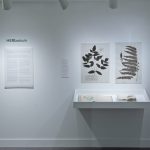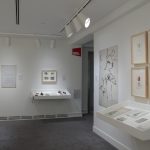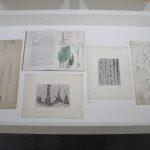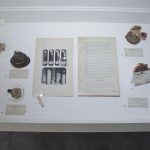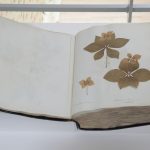11 September – 03 December 2017
Carleton University Art Gallery

HERbarium
This exhibition has been developed for the Carleton Curatorial Laboratory in collaboration with Dr. Cindy Stelmackowich as part of her seminar “Representations of Women’s Scientific Contributions” offered through the Pauline Jewitt Institute of Women’s and Gender Studies at Carleton University.
HERbarium
So, what is a “herbarium?” and why is she the focus?
A herbarium is a collection of dried and preserved pressed plants or fungi that are stored, catalogued and arranged systematically for study.
In highlighting the “her” within HERbarium, this exhibition focuses on the highly skilled and too widely unknown women who contributed to the collection, identification, illustration, production and distribution of early scientific knowledge within the field of botany in Canada.
Because of the accessible nature of botany close to home, and a national pursuit and desire to see, describe and classify flora and fauna species that were distinct from Europe within a then-young Canada, botany was the first natural science formally practiced by Canadian women.
With examples of path-breaking contributions by Catharine Parr Traill, Lady Dalhousie, Faith Fyles, Dr. Irene Mounce and Dr. Mildred Nobles, this exhibition looks back at an important and underrepresented history. It also includes a copy of the “Privy Council Letter, 1920 – Women, Marriage, Employment” which outlines the federal policy in effect until 1955 that prohibited a woman upon marriage from continuing her career as a federal employee. The exhibition also looks forward at the continuing need to encourage women to pursue careers in science, where they face ongoing discrimination on the basis of intersections of gender, race, sexuality, dis/ability and class.

